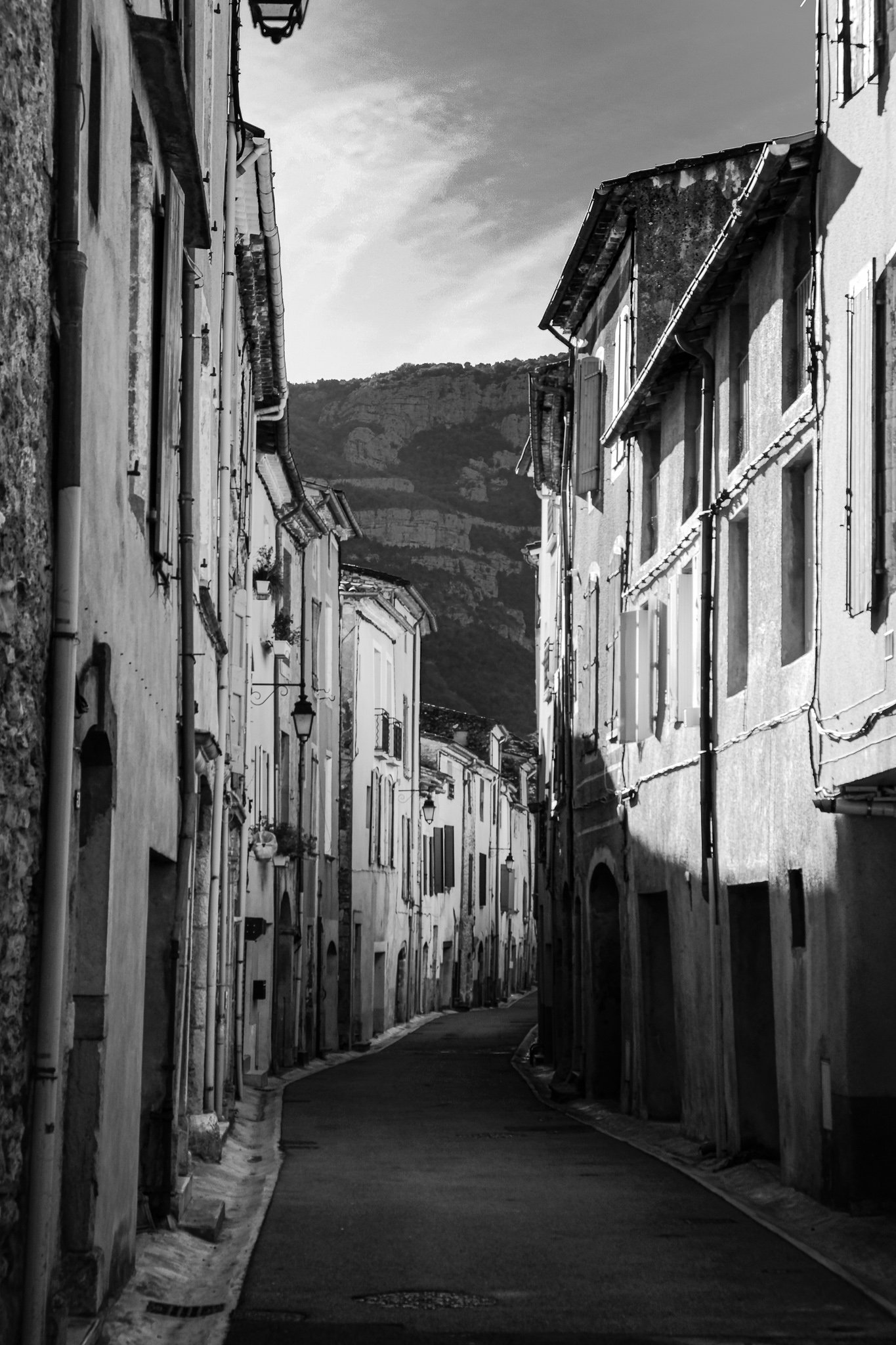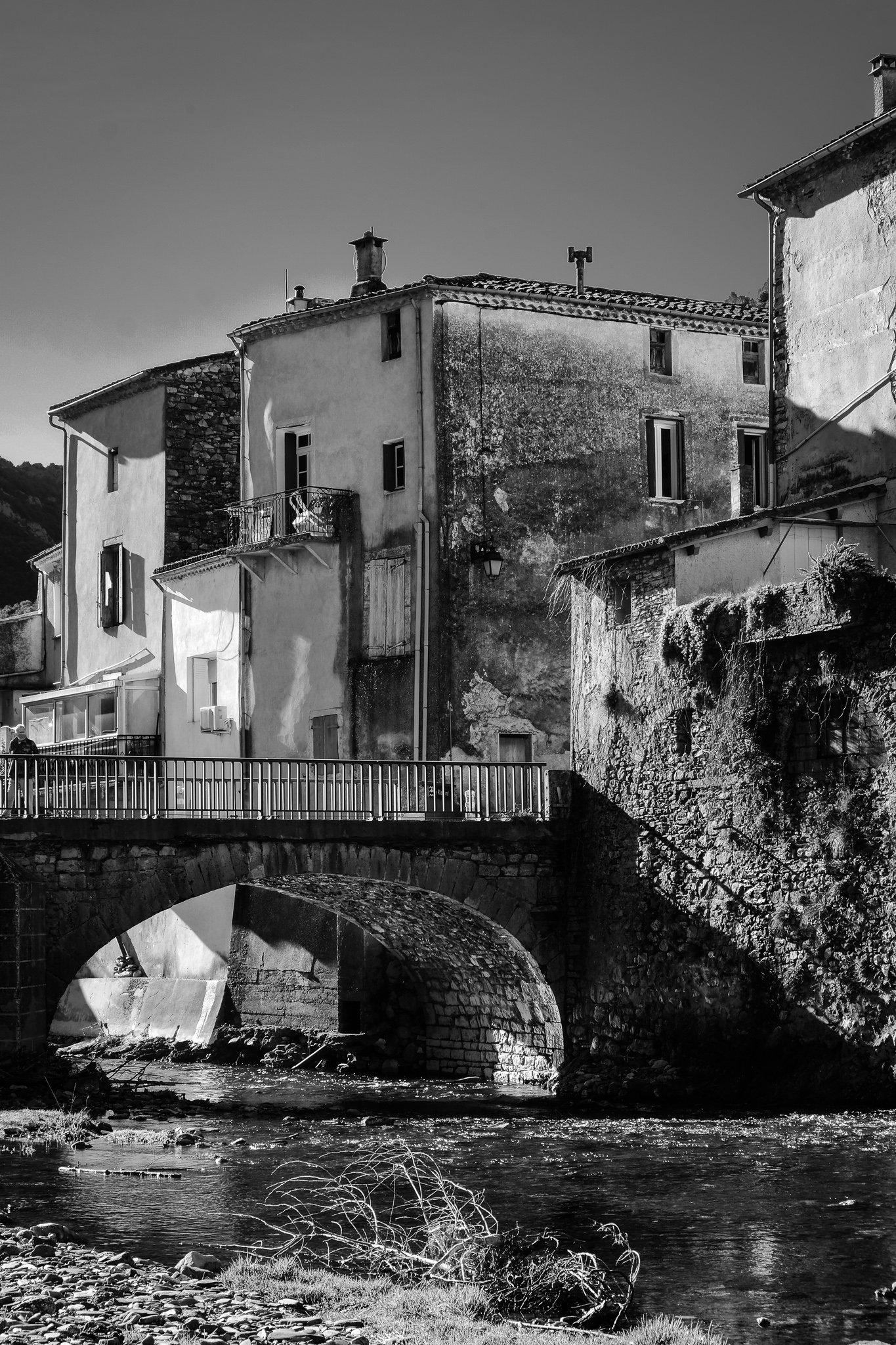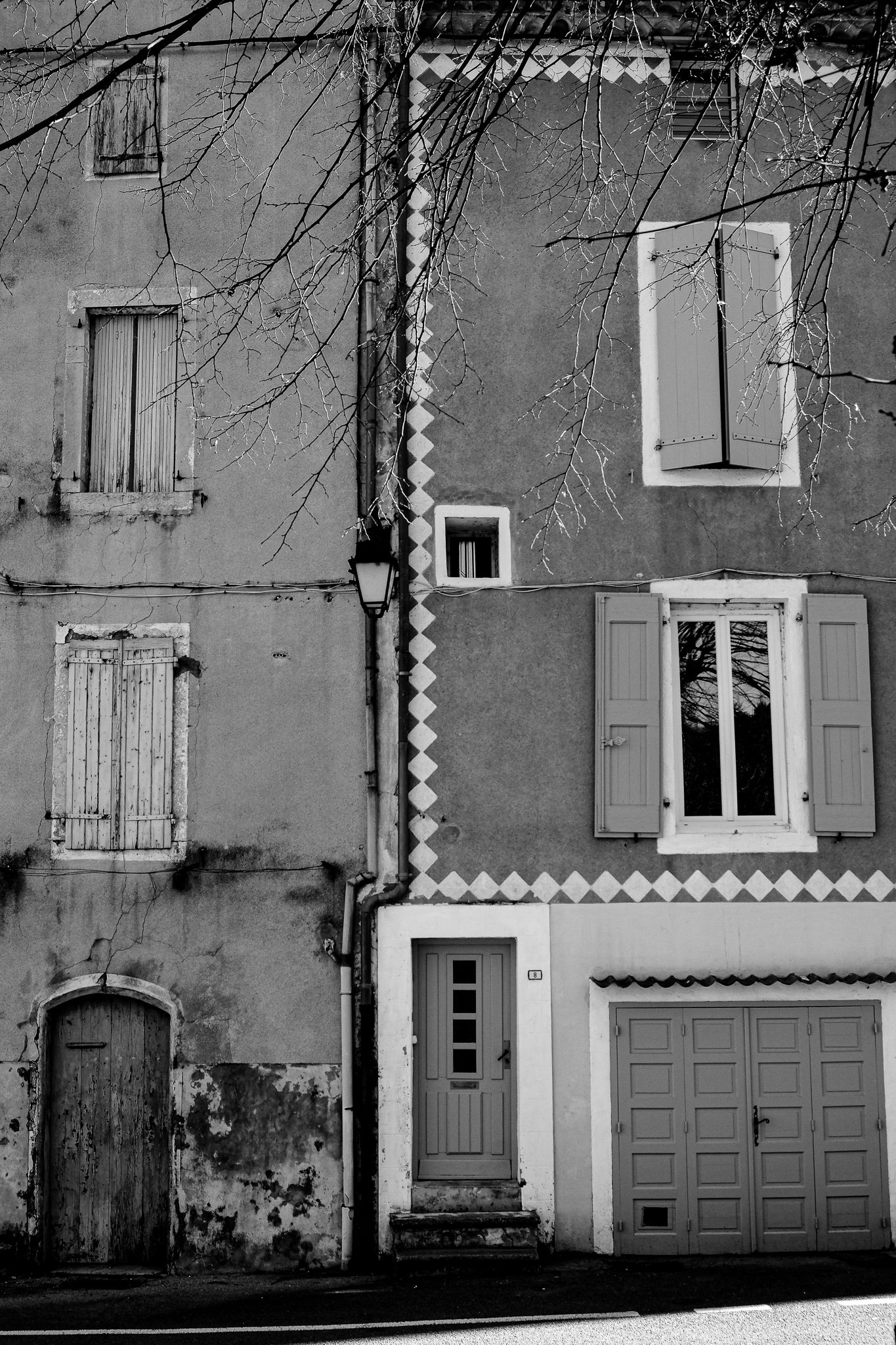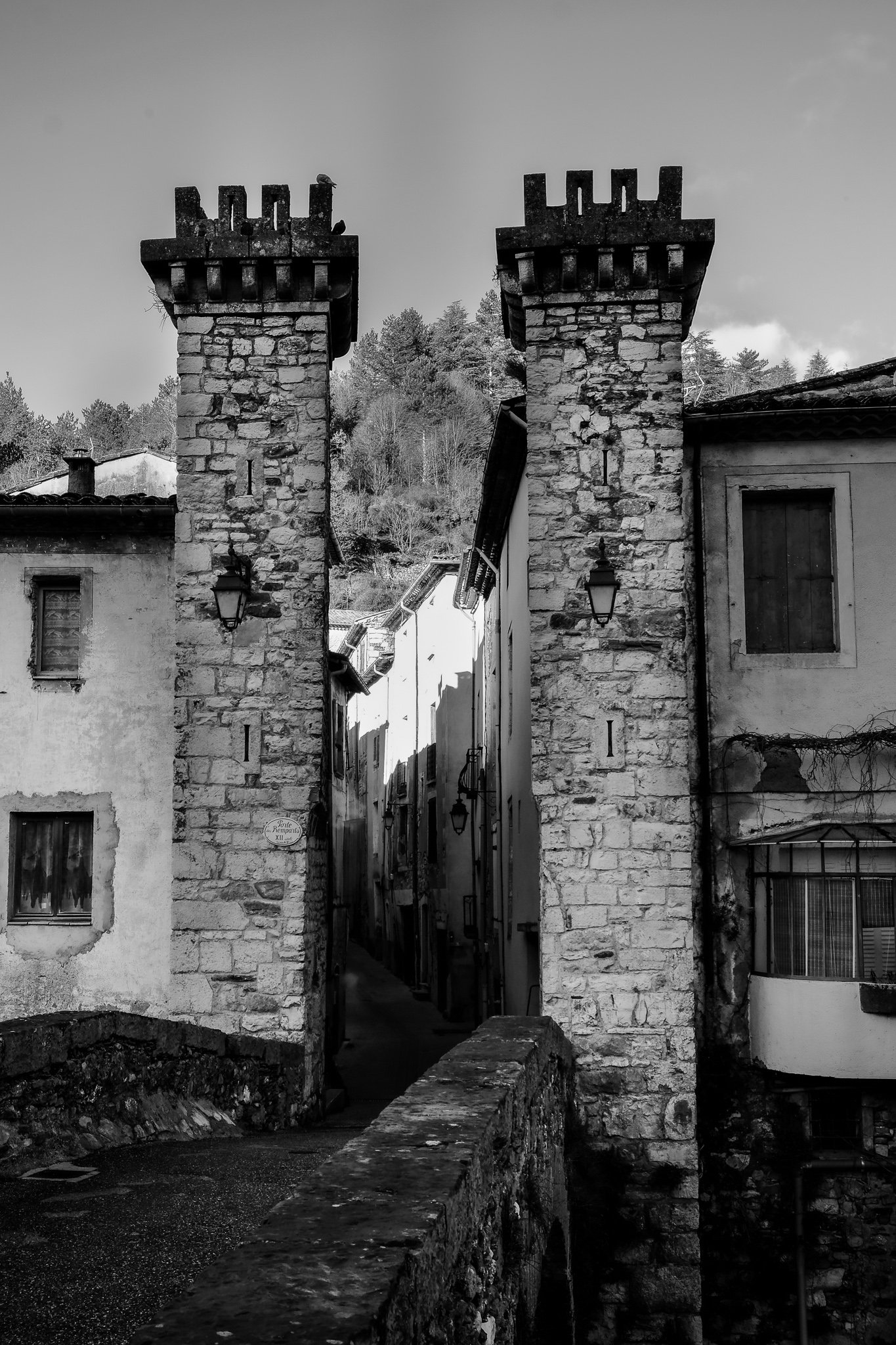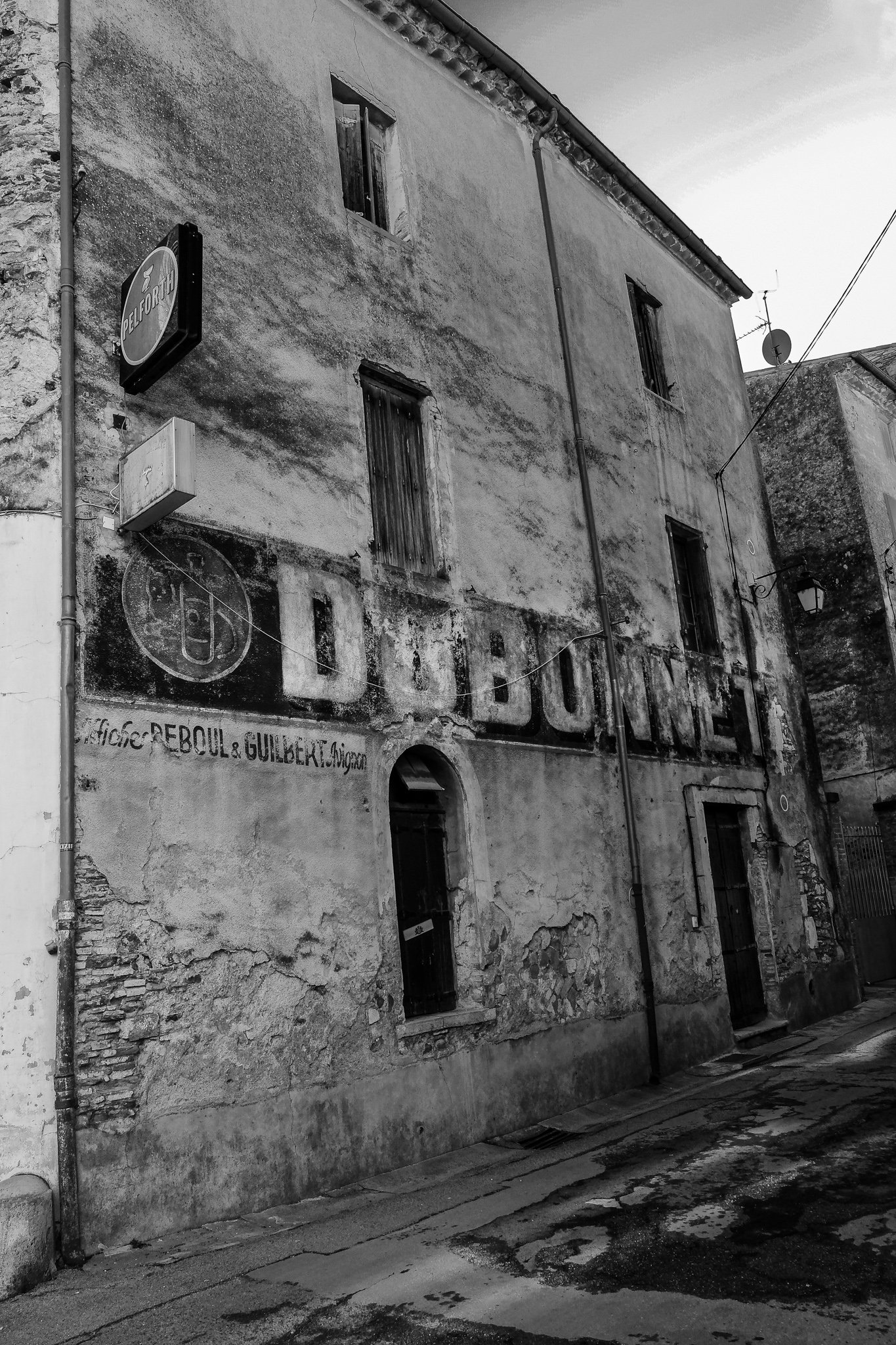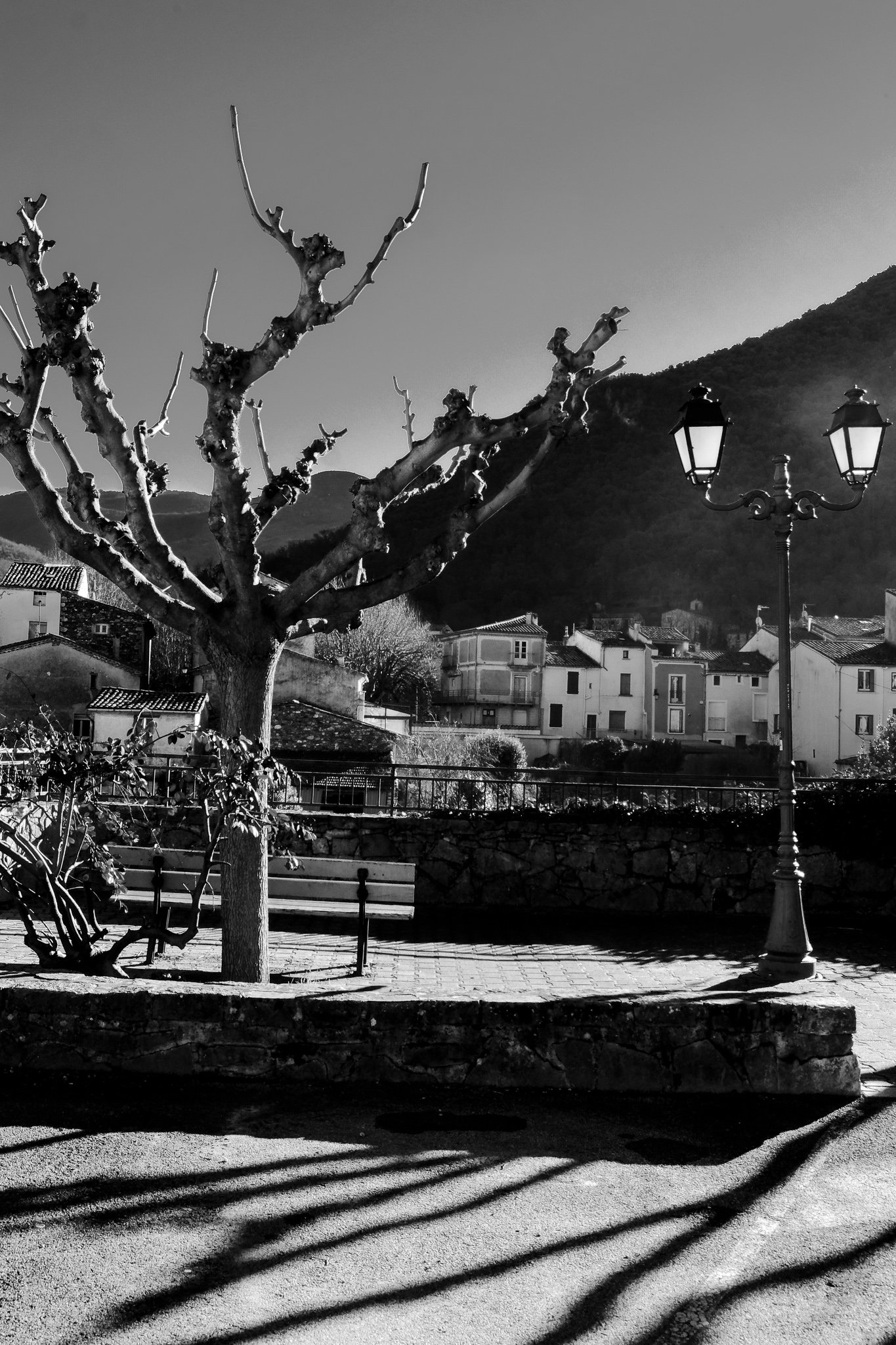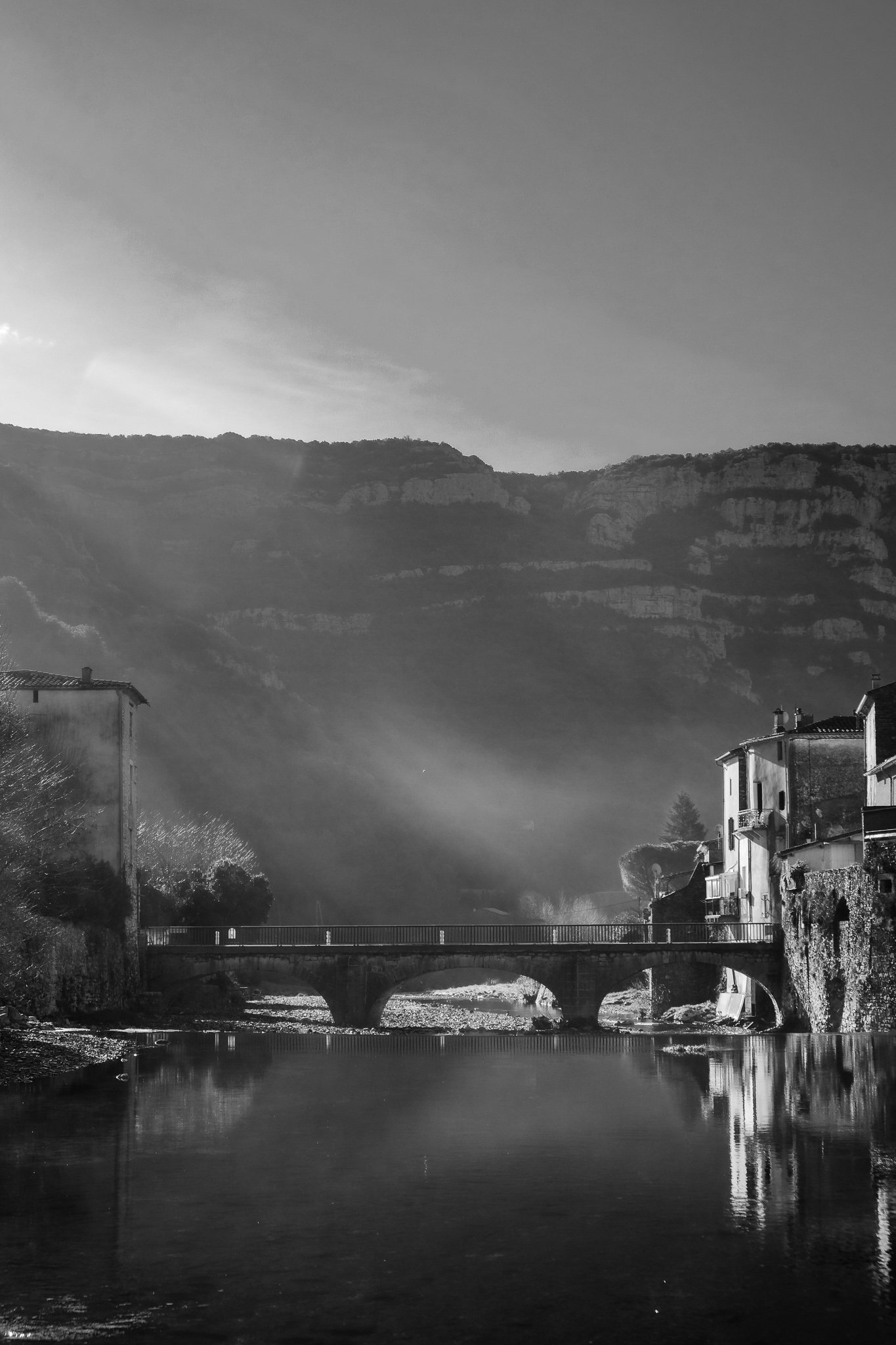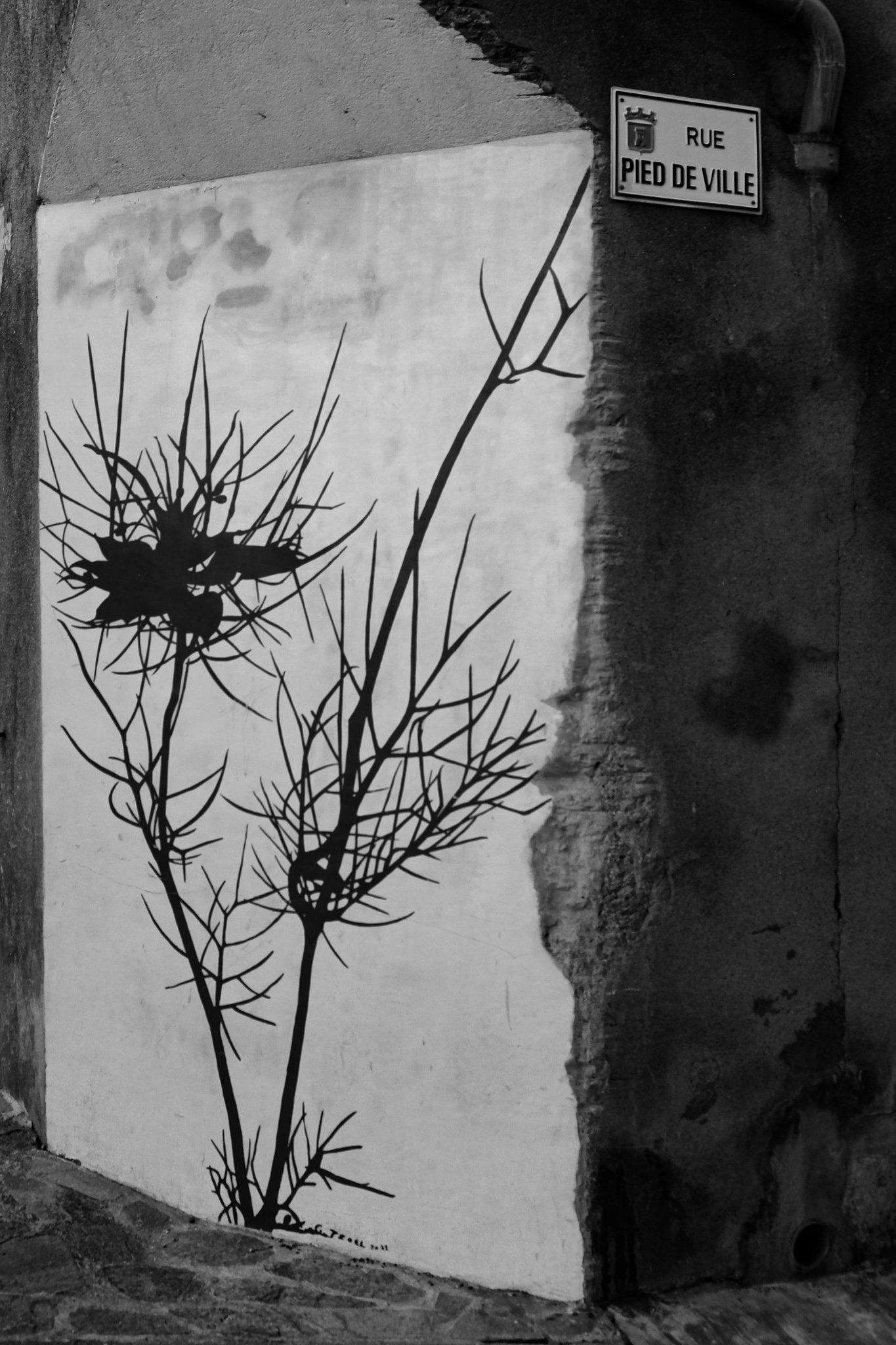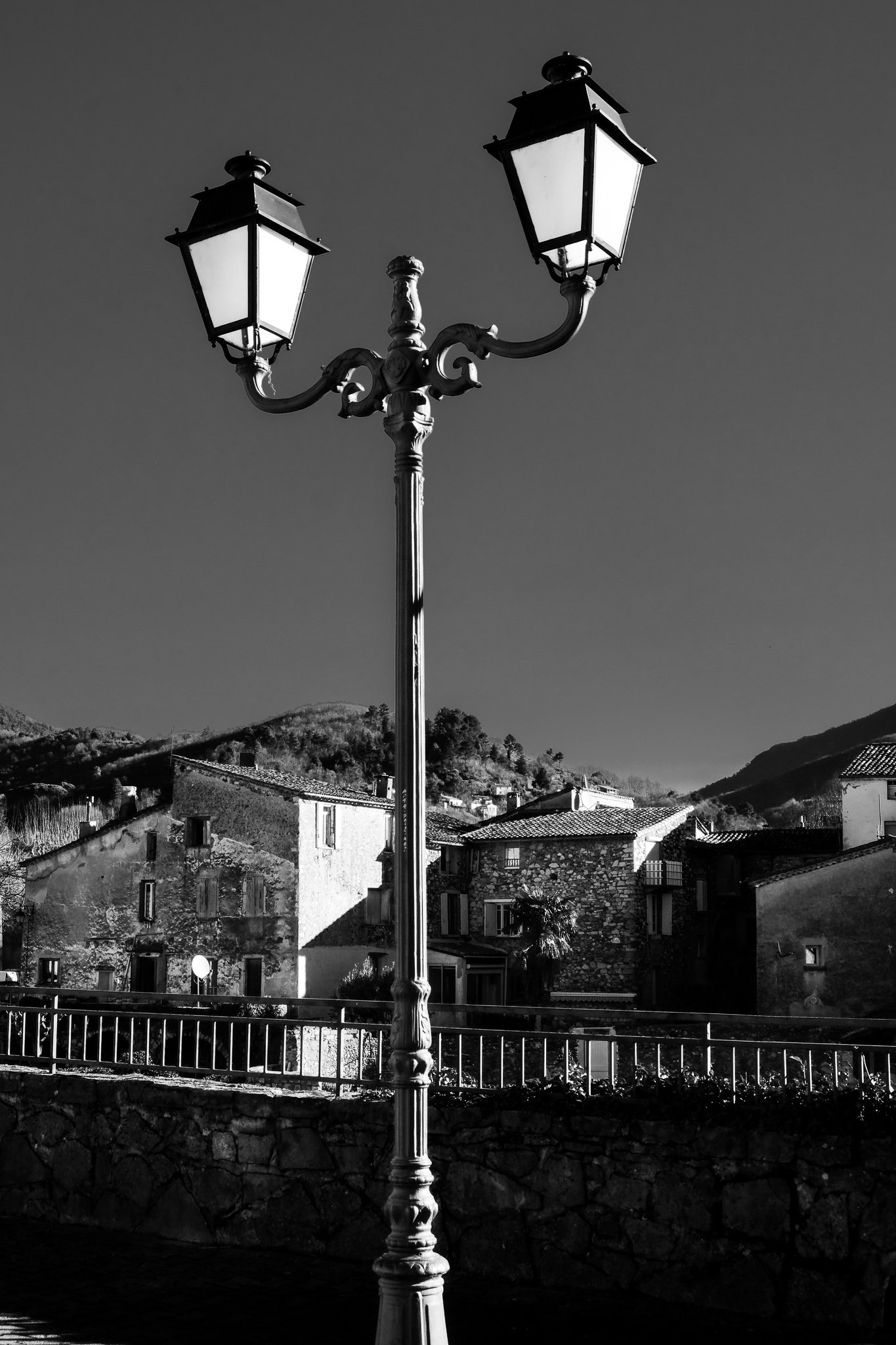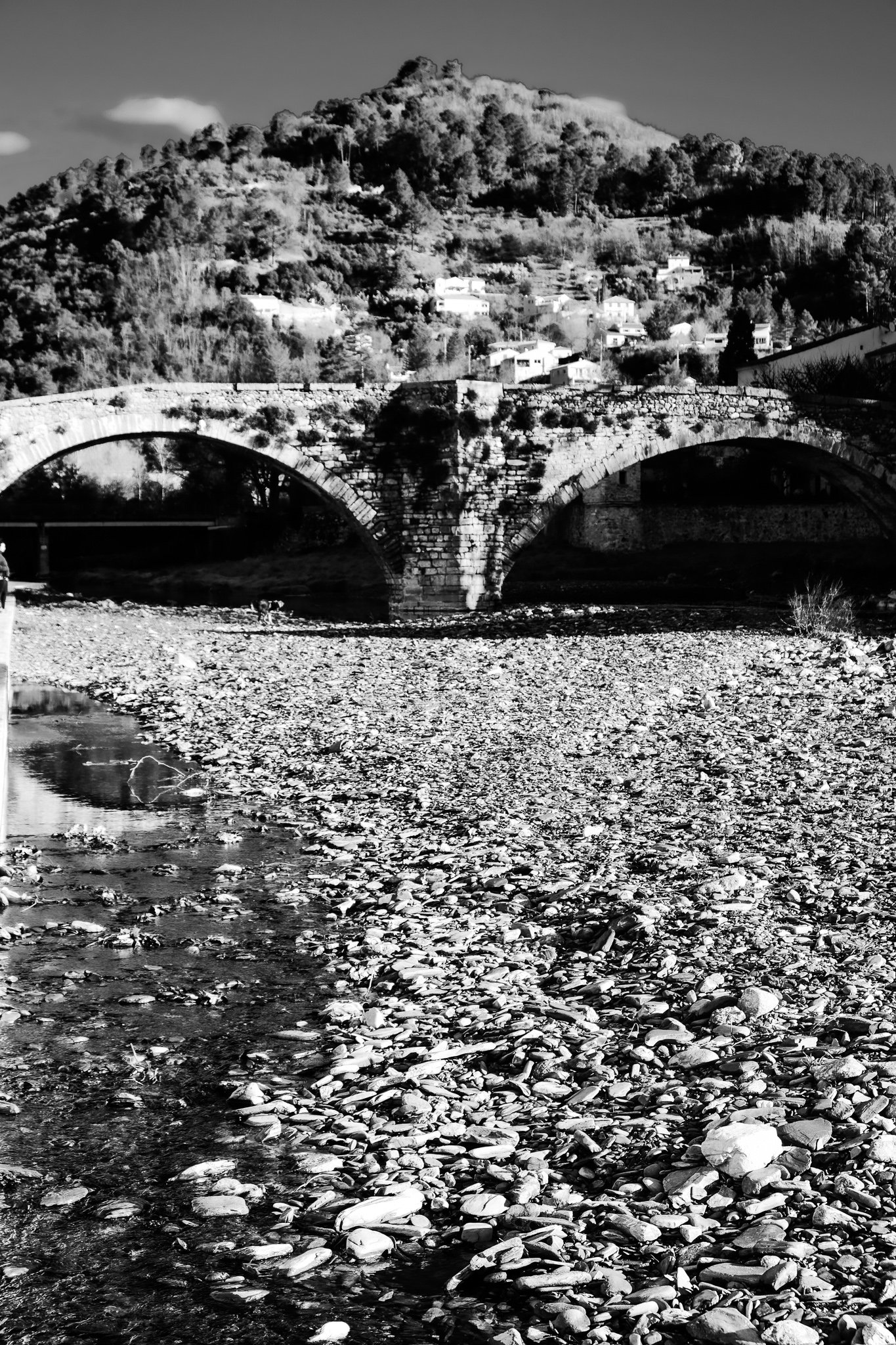February - A Cévenol Town
Austere stone turrets guarding ancient arched bridges. Deep, vaulted passageways leading down to the water, full of the dank musty smell of history in its crevices. Houses piled high, jostling for space, flanking the seasonal river that cuts the town in two. A sense of time passing but not changing, still medieval at its heart, even in 2021. This is our nearest town, at the foot of the valley, surrounded by hills keeping guard. It goes about its own business, minding its own. Not a tourist town but fully functional all year round. A large village really, it doesn’t take much imagination to think of what life must have been like here a few hundred years ago.
During the winter months, the town closes rank and hunkers down. The air heavy with cold is tenacious and clings to the building, staying low and prevalent. The sun has little presence and fails to warm up the bones. The surrounding hills keeping the shadows long. There are mornings when I look out my window down towards the town, a puffy feather eiderdown has billowed out across the valley below, with pillows peaks protruding through.
The town sits astride the Rieutord river which is at its fullest autumn and spring time when the notorious Episodes Cévenolsare likely to hit. The warm, humid Mediterranean air hits the mountains of the Cévennes and results in lashing rain and violent storms. The town is no stranger to serious flooding. During these months the river flows through the middle of the town swiftly and forcefully, dominating its landscape. The ebbs and flows of the river are very seasonal though. It is difficult to believe after its strident presence during the cold months, that in the summer it will be reduced to nothing more than gravelly puddles, little stepping stones of water between the rocky boulders. With a hop, skip and a jump you are soon across the other side.
The population of around 1,500 inhabitants has remained constant for many years. There are old Cévenol families that have been here for generations but also others who have arrived attracted by a promise of a slower pace of life where outside pressures are kept at bay by its own insular nature. This is partly due to its geography - it being far enough away from any big city to make it a comfortable commutable proposition. Surprisingly there are no public transport links, no buses pass through, but the recent co-voiturage I am sure is a welcome addition.
Although there are no supermarkets there are plenty of small local-run shops where you can buy all the essentials and more. Luxuries such as rich creamy sheep’s fromage frais, yoghurt and cheeses, bio of course, direct from an outlaying farm. A plethora of local seasonal fresh fruit and vegetables with delicacies of punnets of redcurrants or hazelnuts or cèpes depending on the time of year. Nathalie who owns the shop sells her sun-ripened garden tomatoes in the summer and there are local jams and plenty of sweet onion doux chutney crammed onto the makeshift shelves.
There are no fancy bistros but a wonderful family run pizzeria - French style. No stringy mozzarella here but pungent salty emmental which requires you to wash it all down with plenty of local red wine. This allows for a perfect Saturday night in my book. Over the years, we have celebrated birthdays and special occasions in the little garden decorated with bougainvillea and banana trees.
Like many French villages and towns, the year is punctuated by all-important celebrations and festivals, diverse in theme and style. In the summertime the small Place du Plan is home to two different festivals. First is the nationally known Les Transes Cévenoles, a celebration of music and art. Tents pop up like multi-coloured jack-in-the boxes on any grassy space available and the town is filled with an energy of creativity and discovery. In between the live music shows and before the night gets going there is street dancing, brightly coloured giant puppets lurching around the square, entertaining the young and old. The leafy plane trees provide welcome shade. Stalls selling colourful vegetarian plates of leafy salads, falafels and humus line the square and you soon get high on another type of sweet smoke that permeates the air.
A month later and the town is En Fête - party time! Over a few days there is a scheduled programme of events always concluding with a concours de boules. As the sun sets, the town sticky with heat gives way to the faded painted fairgrounds rides, with neon lights flashing and carnival music blaring. Kids run around the square buzzing on sugar from baba papa and churros. The teenagers slope off to sit by the river. We fill up on frites and cold beer. Trestle tables line the square and the old folk play cards, families convivially chat with neighbours waiting for the night’s entertainment. Finally, the dancers fill the stage with bare midriffs and iridescent blue sparkles, the singers dressed in white, belting out Euro pop songs. It feels surreal. At midnight on the last day there are fireworks from the bridge, performing flashy loop de loop in the night sky, a fitting finale.
Our girls went to school here from the ages of three to ten, in a tiny school of only forty kids, just two classes for all the age groups. The wonderfully progressive head teacher, chose to mix up the classes and put the oldest kids in with the youngest. Each older child monitoring and helping along the younger. In so doing learning to be responsible, to take care of others before themselves. I am so grateful for the life lessons that my girls learnt here. There were also ski trips in the Alps for all kids from the age of five. In the summer term, there were trips to another town where there was an outdoor pool so they could learn to swim. And they came away with the most precise yet poetic handwriting imaginable.
Of course, village life brings with it a certain number of drawbacks especially when you are foreign and live out of town. Learning social etiquette at the school gate was a case in point and I’m not sure even after years of cheery smiles and les bises I quite got it right. I like to think attitudes mellowed towards me over the years, well by some it did at least and I am happy to have made a couple of enduring friendships. Families were encouraged and in fact required to lend a helping hand. But there was a certain way of doing things as Dan discovered one Saturday morning when he volunteered to help get the school ready for the new term. A handful of other fathers volunteered also, and before work could commence there was a breakfast of unchilled rosé wine neatly served in plastic cups with chunks of baguette and slices of greasy wild boar to keep spirits high.
Now the girls have moved onto the next level of school in a different town. I spend less time here. No real excuse to linger and sit in the little park under the magnolia trees. I still shop here though and some of our favourite walks start from the town and follow the river upstream. We are looking forward to pizza nights again during balmy summer evenings, a little dream to keep us going during these Covid-filled months. I still feel like a tourist here even after twelve years, not a complaint or a surprise but a fact. The town is very Cévenol and a tough nut to crack and a wonderful place to be.

